Breaking Barriers: The Inspiring Story of Joanne Missingham
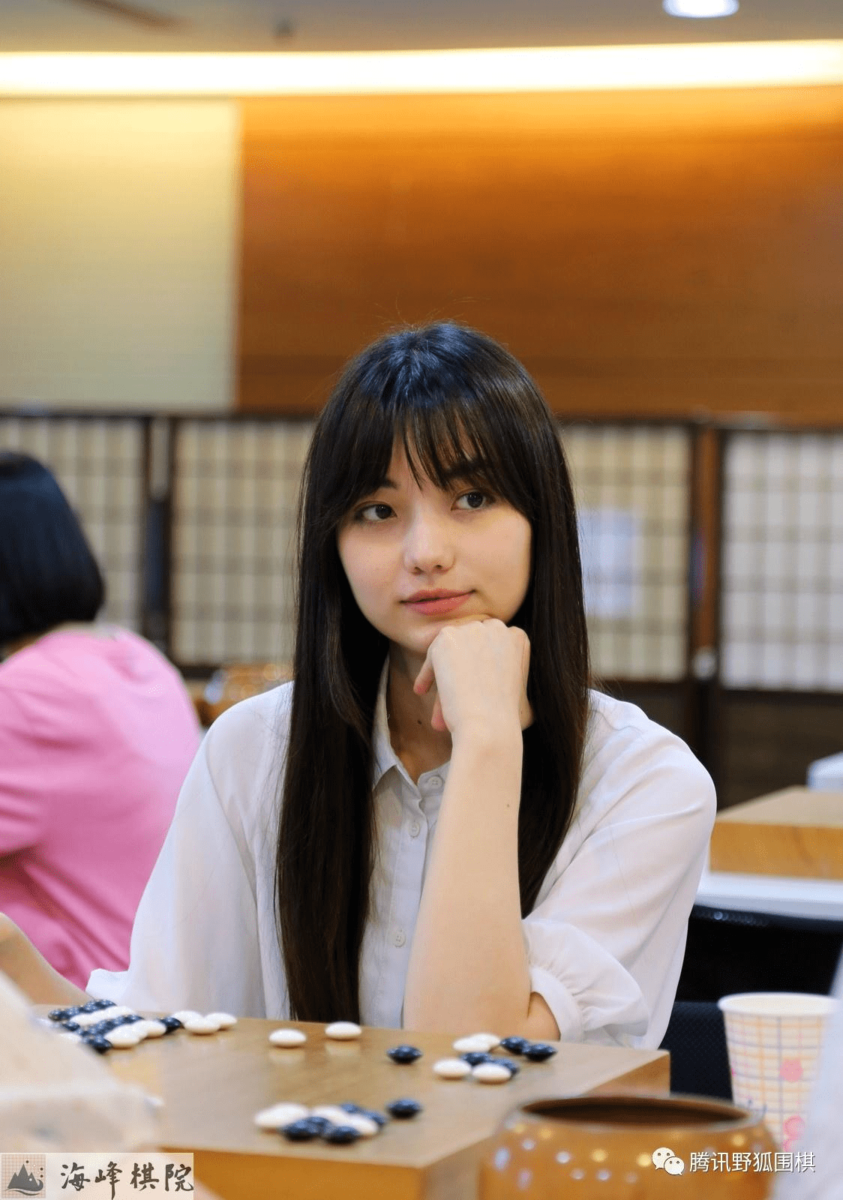

Joanne famously said: “Go is not just a game; it’s a reflection of life. It teaches you patience, strategy, and how to adapt to constantly changing circumstances.”
Joanne had to overcome several obstacles to become a well-known player worldwide after learning the game at an early age. Her tale is about more than just winning a game; it’s about motivating people and leaving a lasting impression on the Go community.
Childhood and Early Life
The Australian-Taiwanese Go player Joanne Missingham (Hei Jiajia being the Chinese name) was born in Brisbane, Queensland, on May 26, 1994. Joanne’s early upbringing was greatly influenced by her family.
Joanne was first introduced to Go at a very young age by her mother, who taught her the basic rules in order to develop her daughter’s critical thinking and problem solving skills. What was initially just a hobby, became a passion and she continued studying it from books and with her first Go teachers in Taiwan.
Moving to Taiwan – Learning to Play Go
In 1998, when she was 4, her family decided to move to Taiwan.
She faced the cultural barriers, particularly as a young foreign-born girl and Joanne had to adapt to a new culture, language, and educational system.
Her mother took Joanne to a lot of different classes to discover her talents and so she studied gymnastics, ballet and the pipa lute in the Chinese Orchestra. She participated in shows for kids and appeared on TV.
Her first experience of Go was at the age of 6 and by the age of 8 she was already thinking of a career as a professional in Go mainly due to the inspiration she got from her 1st teacher who was a Go professional; of course she didn’t know what a professional Go player was, but then she watched the anime “Hikaru no Go” from where she understood what a professional Go player was and she understood that she can have a job as cool as playing Go and be paid for that.
She took swimming classes and she was accepted to the school swimming team.
Being on the school’s swim team got her to be at school at 6 a.m. and swim 3000 meters in the morning before beginning the normal school classes. Her swimming teacher commented that she was very strong at tolerating pain, hard work and she had a strong will. The pool had no heating at first and so in the winters it was freezing. She was never complaining and she kept an amazing strength at going through all the stamina training required.
We can certainly say that such experiences made her very strong mentally and physically, very well prepared for the game of Go.
Of course, her daily routine was intense, spending hours studying game records, learning advanced tactics, and playing countless practice games against stronger opponents. Her commitment and disciplined training regimen began to pay off as she rapidly improved, catching the attention of the Go community in Taiwan and beyond.
She was a very popular kid and she also did a lot of commercials and video shootings while she was still a child.
What was very important for her future in Go was that her first teacher, being a pro, taught her to think in terms of building territories instead of just capturing stones, even if, even Joanne confesses that for a kid capturing stones was where the fun was.
She enrolled in the Taiwan Qiyuan, the official organization overseeing professional Go in Taiwan and began training under the guidance of top Go masters, like Lin Haifeng (Rin Kaiho), a former world champion who helped her refine her techniques and deepen her understanding of Go strategy.
By the age of 11 she had 6-dan amateur rank and she went to a lot of competitions at home or abroad with her mother.
First Steps in Competitive Go
Before finishing elementary school, at 11 years old, in 2005, her father was sent for work to the USA and the entire family went with him.
In the USA there were no Go teachers or players in 2005 or maybe hard to find for an 11-year girl, so she woke up every day very early to play online with the masters in Asia. She did that by herself, no one pushed her to do it. She was extremely passionate about the game and In 2 years, at 13, when she reached 9-dan amateur, as mother promised her, she took her to China for the professional exam.
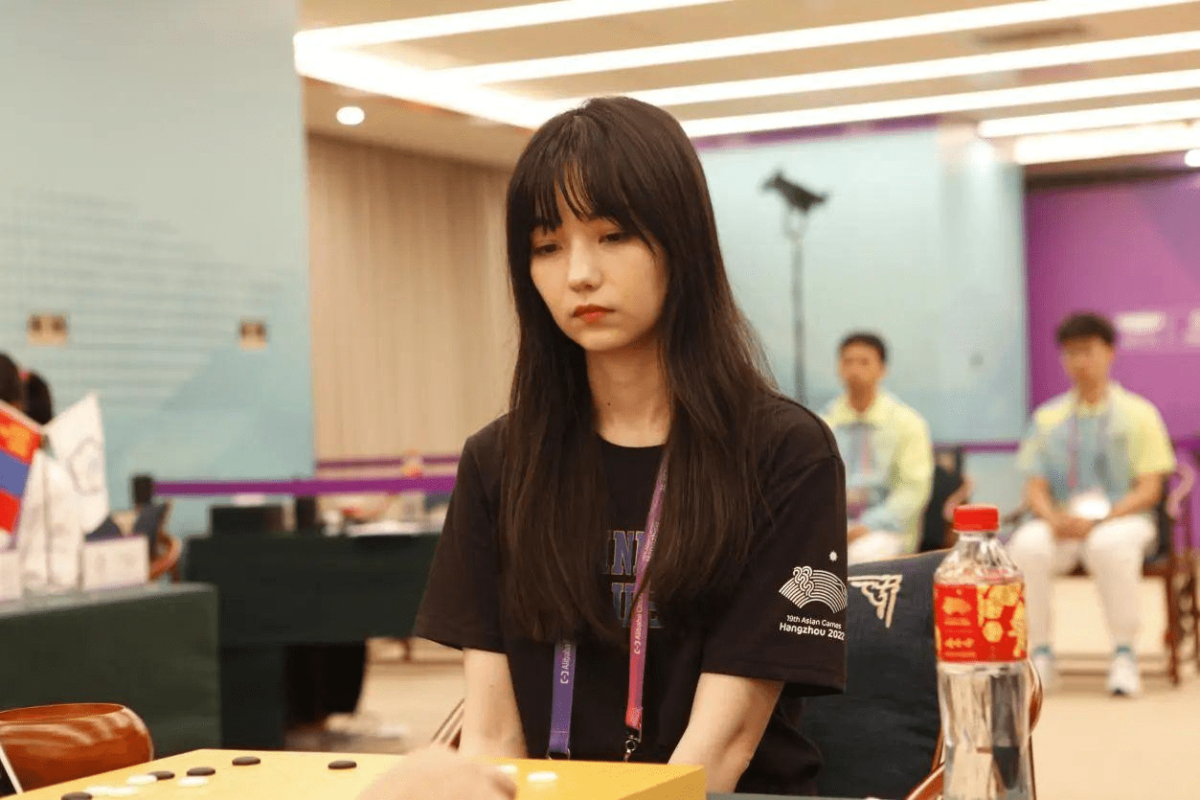
The professional exam in China is very tough: only to be accepted to take the exam is very difficult and only 5% of the candidates are admitted to take the exam while only the first 2 will get the professional rank. On this occasion she ended 20th, but she asked her mom to give her another chance and, next year, at 14, she finished second and so she got the 1-dan professional rank.
From here onwards, her mother took her to contests everywhere and that took away time from family and Joanne had even to put a hold to the formal education; her father was concerned about how she was going to make a living because a professional player income is not fixed, as they make money according to the competitions they win and the money they make.
She asked her dad to allow her to make enough money to support herself and her mother, who was always on the road with her, and she succeeded in the first year of being a professional to achieve that. After that her father fully supported her.
Becoming a Professional Player
So, by now, at only 14, in 2018, Joanne was 1-dan professional.
This achievement was significant for several reasons:
- Joanne was not only one of the youngest players to reach professional status, but
- She was also among the very few women to do so.
Her promotion signaled her arrival on the professional Go scene and set her on a path to compete in major tournaments against the world’s best players.
In 2010, at 16, she joined Taiwan’s Go training team and she was promoted to 2-dan professional by the Taiwan Go association. In the same year in November, at the Asian Games in Guangzhou, she got the bronze medal and the 2013 Asian Indoor and Martial Arts Games in Incheon, South Korea, where Go was included as a sport, she represented Taiwan; she competed in both the women’s individual and mixed team events, winning a silver medal in the women’s team event.. This was a significant accomplishment on an international stage, further boosting her profile in the Go community.
So, she frequently reached the later stages of these competitions, such as the Qiandeng Cup and other Asian Go tournaments, which helped solidify her reputation as a skilled competitor.
Joanne won the 2013 National Women’s Go Championship in Taiwan, further proving her dominance in Taiwan’s Go scene adding to her growing list of accomplishments and reinforcing her position as one of the strongest female players in Taiwan.
As you can imagine she participated in many tournaments during these years of which maybe we can mention a few, like:
- the 2017 Women’s Meijin Title Tournament where she lost to both Fujisawa Rina and Ueno Asami; these defeats, as she later credited, were instrumental in helping her refine her own playing style, teaching her the value of patience, precision, and adaptability.
- the 2016 Wu Qingyuan Cup where she lost to Choi Jeong, but Joanne gained invaluable experience in dealing with high-pressure situations against a top-tier opponent; This defeat has helped her understand the importance of balancing defense and offense and adapting to different playing styles.
- the 2018 Bingsheng Cup where she was the runner-up of the competition losing the final match to Yu Zhiying.
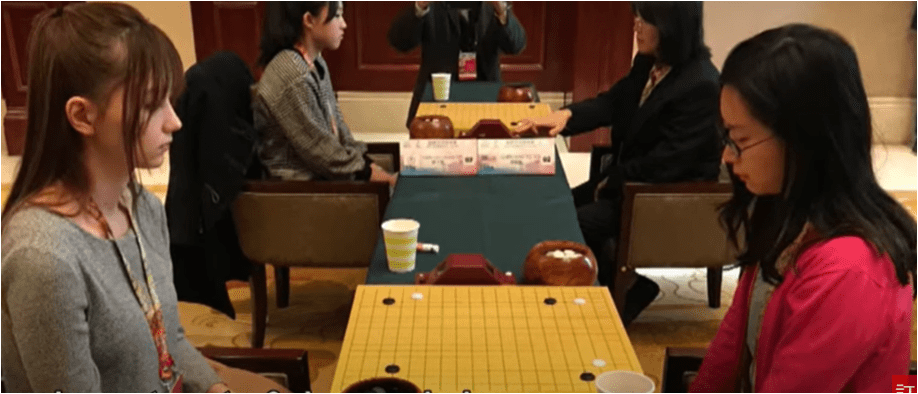
All the matches showcased Joanne’s tenacity and strategic depth, earning her respect from fans and competitors alike. All defeats were a learning experience, motivating her to further sharpen her skills and adapt her strategies for future encounters against top-tier opponents.
Rising to 7 Dan Professional
Since turning professional in 2010 at 1 dan, she has steadily accumulated wins and notable performances that have earned her promotion.
The Taiwan Qiyuan, the governing body for Go in Taiwan, has specific criteria for dan promotions. These criteria typically include the number of wins, performance in ranked tournaments, and contributions to the Go community. Joanne’s consistent achievements have met these criteria over the years, leading to her steady rise through the professional ranks.
Joanne Missingham was promoted to 7 dan professional by the Taiwan Qiyuan in 2015 when she won Taiwan Female Strongest.
The promotion reflects her sustained excellence and commitment to the game over more than a decade. The 7 dan rank is a prestigious level that signifies a high degree of skill, strategic depth, and experience, placing her among the elite players in the world of Go. She was Taiwan’s highest ranked female player. She went on and won that tournament 3 more times in 2016, 2017 and 2019.
Beyond the Board: A Life in Full Play
Joanne Missingham, known as 黑嘉嘉, has always been dedicated to her career in Go. However, she also values her personal life. Balancing these two aspects has been a challenge, but she manages it with grace.
Joanne has demonstrated from a young age a very strong opinion on fairness.
Advocacy for Gender Equality in Go – The 2011 Protest Incident
In 2011, at only 17, during a tournament in China, Joanne Missingham publicly protested against gender discrimination in Go. At that time, there were significant disparities in the prize money awarded to male and female players, even in mixed tournaments where both genders competed at the same level.
The Protest: During the tournament, Joanne held up a fan that read “Protest Gender Discrimination” as she found out during the tournament that men were getting paid, but women got no pay. This bold gesture immediately drew media attention and sparked widespread discussion within the Go community about gender inequality. Her protest highlighted the fact that female players were often paid significantly less, or not at all, than their male counterparts, even when they performed at similar or higher levels.
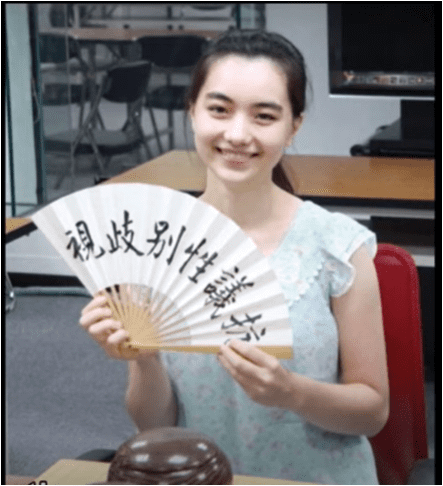
We can see here a very strong resemblance to another very strongly opinionated woman from tennis, Billie-Jean King, but this time in the Go.
Joanne’s action was widely covered by the press in both Taiwan and China and drew support from many players and fans who felt that the existing structures were unfair. The protest put pressure on Go organizations to re-evaluate their policies regarding prize distribution and the treatment of female players, contributing to an ongoing dialogue about gender equity in the sport.
Giving Back to the Community
In addition to her own accomplishments, Joanne’s goal is to have a long-lasting influence on the Go community. Her goal is to create a lasting legacy that encourages coming generations to follow their dreams and overcome any obstacles they may encounter.
She has been named as a Go Ambasador and you can see her TEDx conference here:
Vision for the Future of Go
Joanne Missingham envisions a world where the game of Go is more accessible and appreciated globally. She aims to promote Go in schools and communities, making it a part of educational curriculums. Her dream is to see Go recognized as a mainstream sport, with international tournaments drawing large audiences and media coverage.
Acting and Media Appearances
We know from her childhood that she was a very dynamic and active kid, going and participating in a variety of activities in the entertainment and sports areas. In 2020, at 26 years old she was offered a role in her first movie “My Missing Valentine”. In an interview she mentions that acting has proved an amazing thing for her, as previously she was tempted to always play down her emotions. Now she knows better how to recognize her emotions and when she feels some emotion during a Go game she now thinks that she can use that feeling when she acts in a movie.
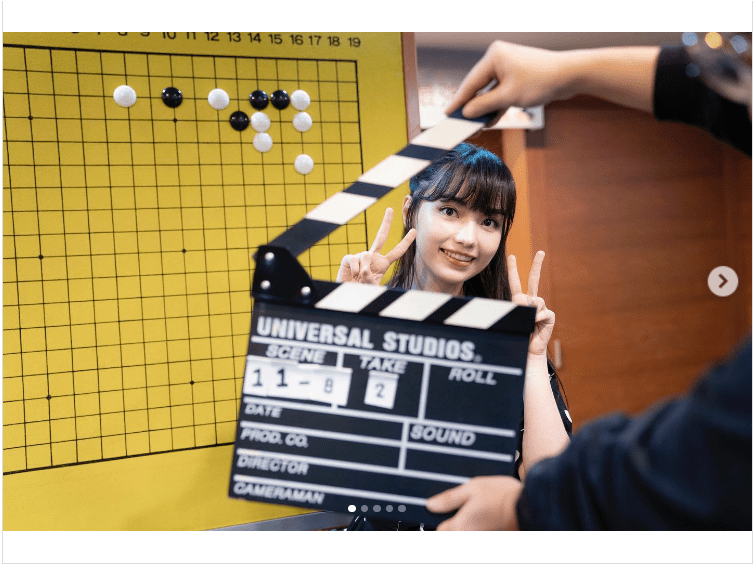
Legacy and Long-Term Impact
Joanne’s legacy in the Go community is profound. She has raised the bar for what is possible in the game. Her impact will last for many years since she keeps motivating a new round of players. Joanne’s tale serves as a tribute to the strength of perseverance and the influence one individual can have on a community.
Influence on Young Players
Kids have seen from her journey from a young enthusiast to a top player that with dedication and hard effort, they can reach their goals. She is regarded as a role model by many young players, who are motivated to pick up the game and pursue excellence by looking up to her.
Joanne Guiding the Future Generation
Joanne has a strong commitment to coaching aspiring go players, particularly females. She wants to serve as a source of motivation and direction since she thinks it’s important for kids to have role models. Joanne intends to start a mentorship program that will give budding talent resources and assistance. She wants to see more female gamers become well-known and break down gender stereotypes in the game.
Contributions to Go Organizations
Joanne has not only excelled in playing Go but has also contributed significantly to various Go organizations. She has been involved in teaching, organizing events, and promoting the game globally. Her efforts have helped in making Go more accessible and popular among different age groups and communities.
She says: If you want to play first you need to be passionate about Go and willing to spend lots of time and energy on it. Secondly, if you want to play well, mindset is important. You cannot win every time, you will win some, you will lose some. You need to learn how to face defeat.
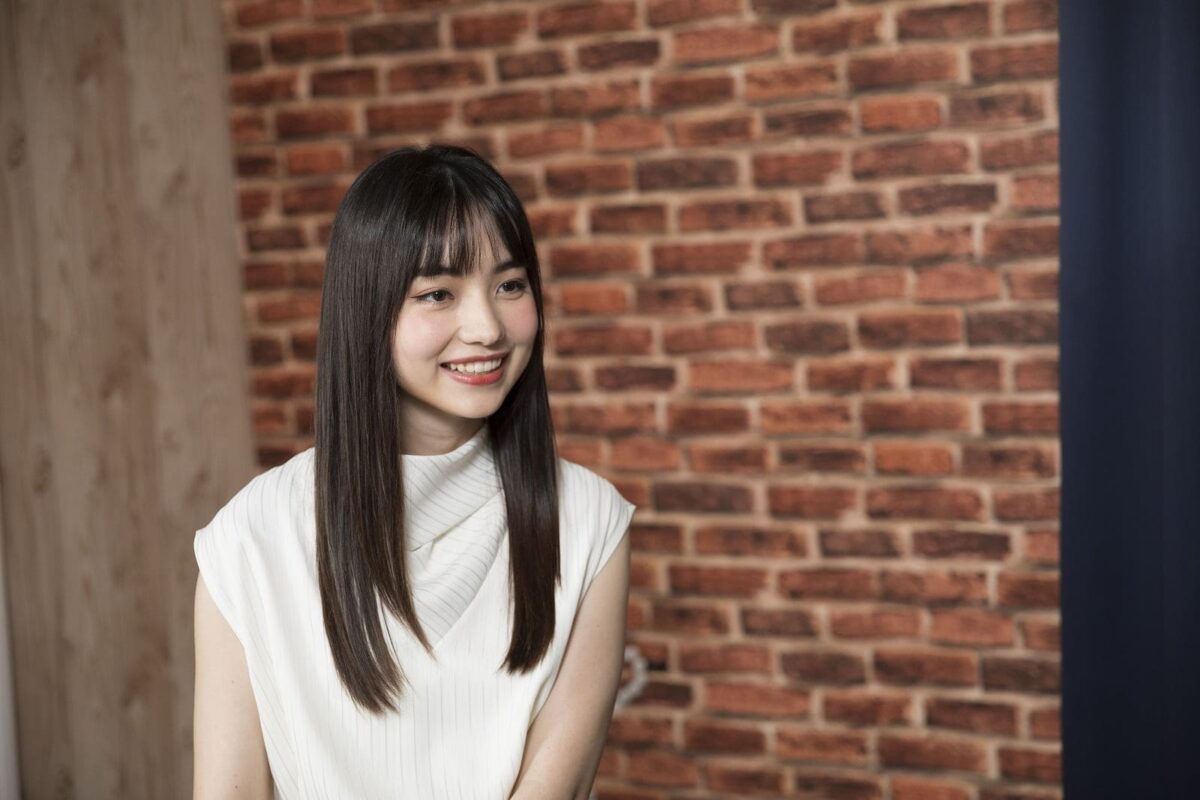
Conclusion
Joanne Missingham’s experience in the Go community is truly inspirational.
So, at 30 she is a 7p Go Player, an actor and an entrepreneur.
Would you consider that she was just talented, gifted from birth with such amazing talent or her hard work and determination got her where she is today?
In my view, without the hard work and without the full support from her family she couldn’t have gotten here, despite her obvious talent and beauty. Actually, in Japan she is named ”One-in-a-Millennia Go Beauty”.
But think for one second: she could not have achieved all that without her determination and her passion for Go. This can be an inspiration for anyone to break through the preconceived ideas to get out of their comfort zone and train and fight for what they love or want to achieve in a positive mindset.
She has demonstrated that one can overcome obstacles and achieve success if they are driven and passionate. Joanne’s tale serves as a tribute to the value of pursuing one’s dreams despite all challenges and the strength of tenacity. Her accomplishments have improved her standing within the go community and opened doors for upcoming players. Joanne Missingham is a real inspiration, demonstrating that everything is achievable with perseverance and hard effort.
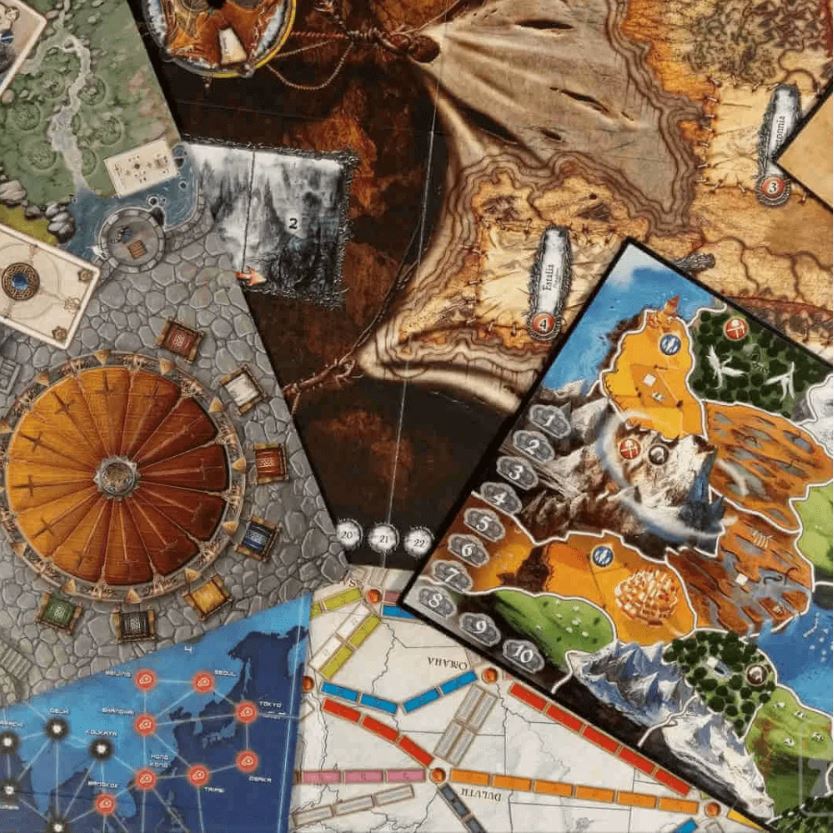
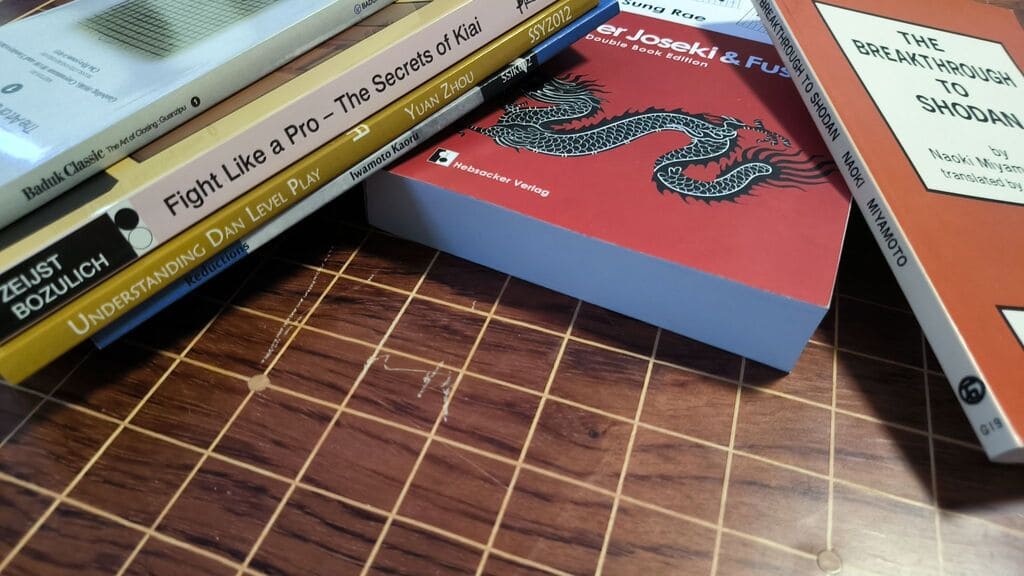
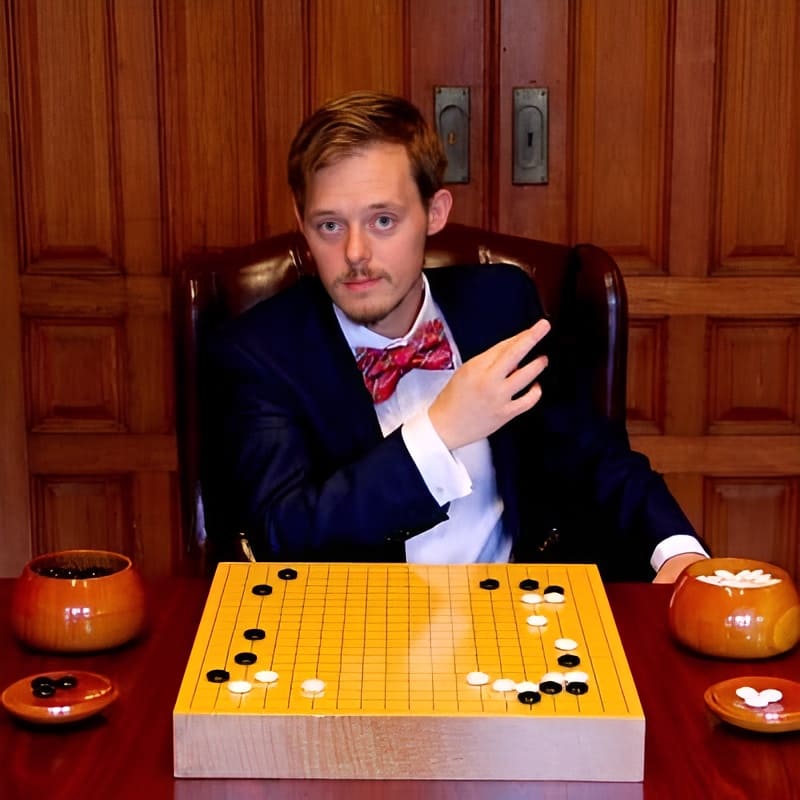
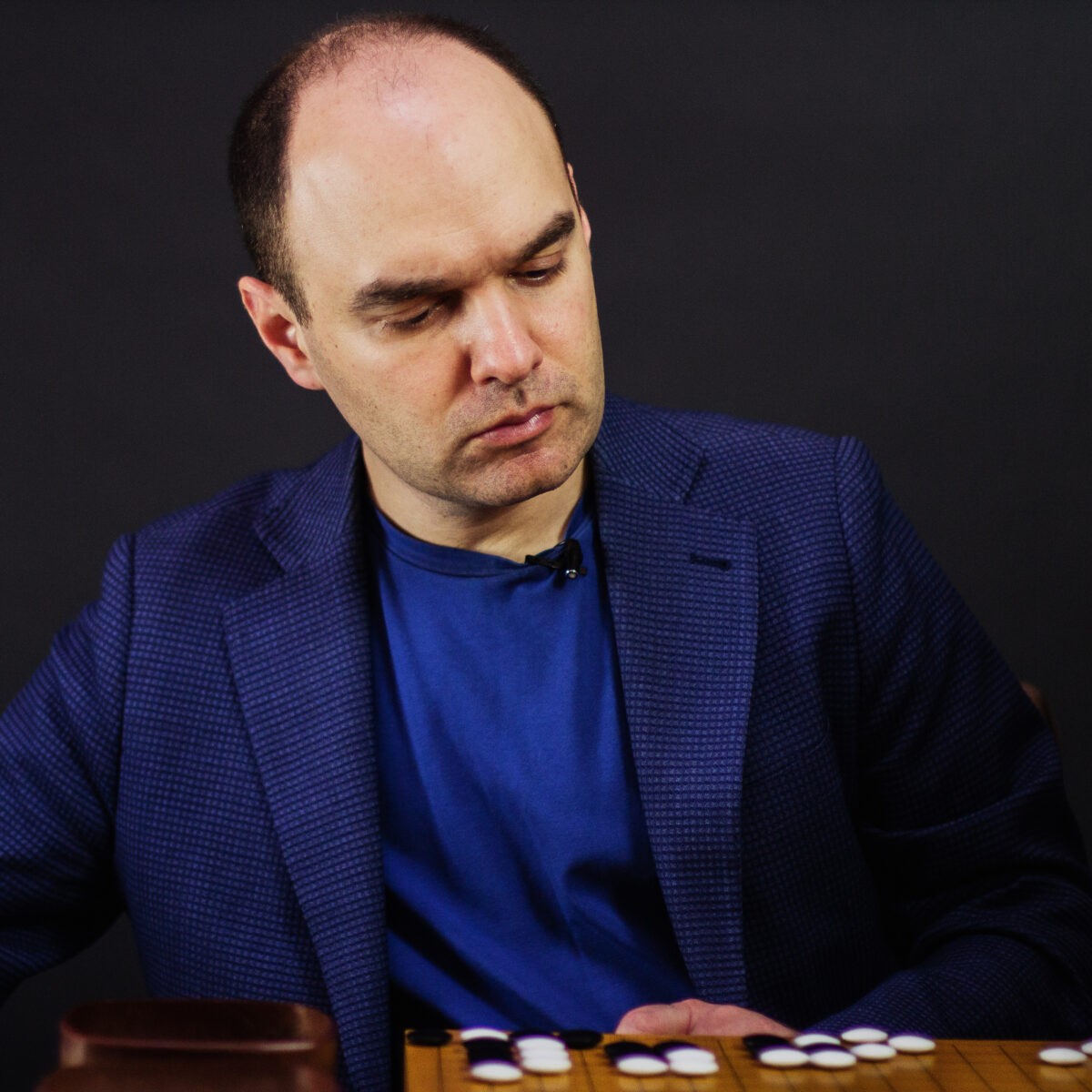
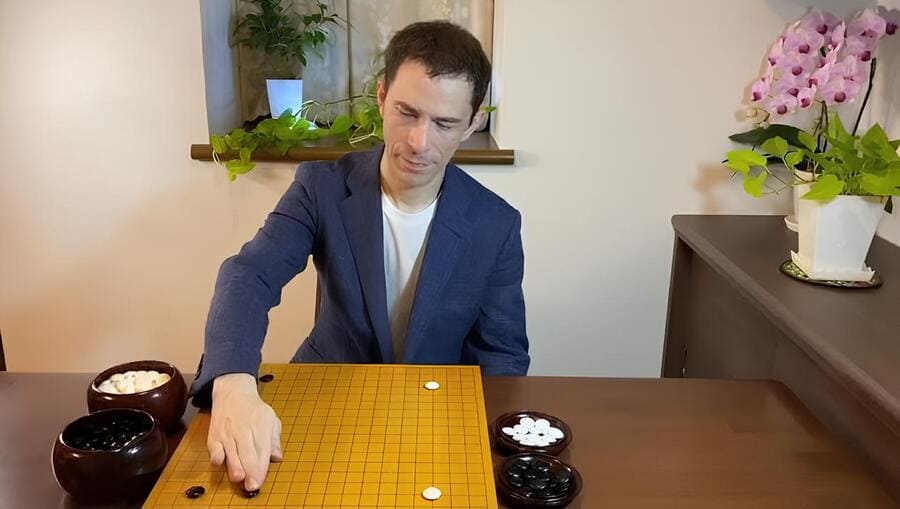
Оставить комментарий